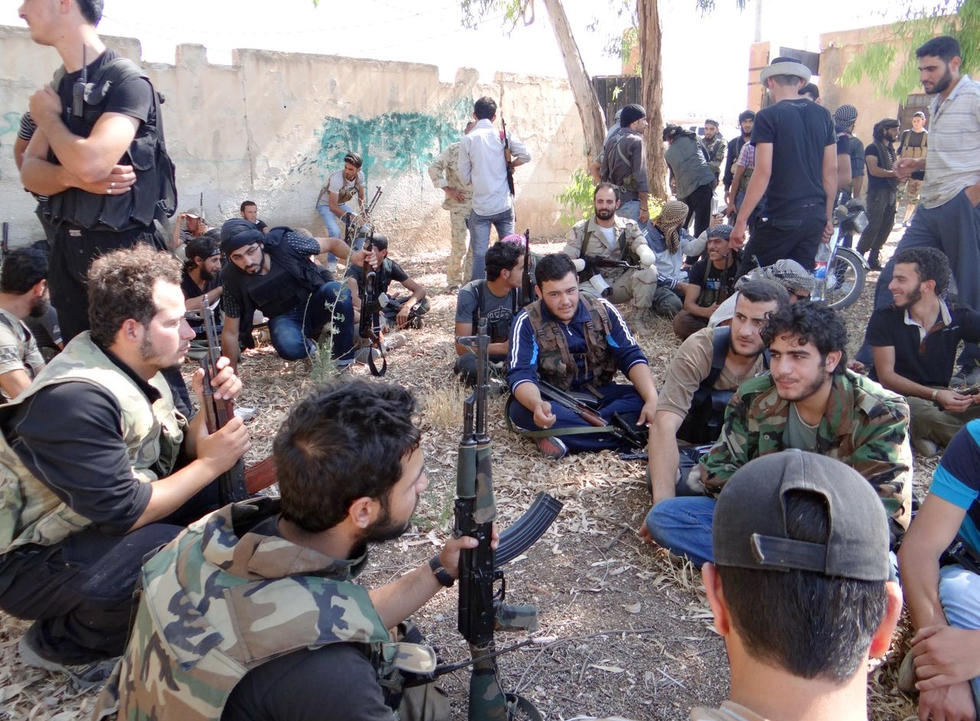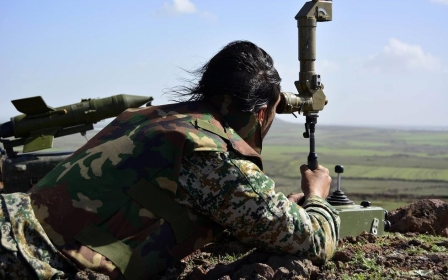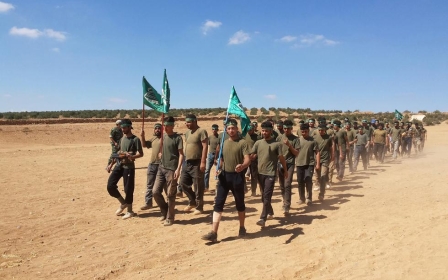Syrian rebels split over coalition al-Qaeda links

The Syrian opposition has split over the presence of al-Qaida affiliated groups in one of the most prominent opposition coalitions.
In a series of statements released through social media, various units of the Southern Front of the Free Syrian Army have stated that they will not work with the Jaish al-Fateh (Army of Conquest) coalition, due to the presence of “takfiri” fighters, mainly referring to al-Qaeda-linked Al-Nusra Front (JAN).
Four units - Firqat Fallujah Houran, Alawiyat Seif al-Sham, 24th regiment, and the First League - all announced their refusal to work with Jaish al-Fateh, who have just launched a ‘Southern Region’ branch to operate in the provinces of Daraa and Quneitra.
The 24th regiment "refuse military or ideological co-operation, or co-operation of any kind, with any extremist faction that promotes takfirist ideology" referring to the Islamic practice of "takfir" whereby one Muslim condemns another Muslim as a non-Muslim.
However, another unit, Liwa al-Shaheed al-Aqeed Ahmad al-Omar, apparently broke from the other groups and announced its intention to join the coalition.
Jaish al-Fateh has been one of the most effective fighting forces among the Syrian opposition, driving Bashar al-Assad’s forces almost entirely out of the northern province of Idlib after seizing the strategically important city of Jisr al-Shoughour in March.
A large number of organisations have affiliated to the coalition's various regional incarnations, including Ahrar al-Sham, Jaish al-Islam and the Sham Legion.
Though it has fought both IS and the Assad government, the presence of groups that follow the ideology of, or take orders directly from, the al-Qaeda leadership - such as JAN and Jund al-Aqsa - has made both other opposition fighters, and other international powers, particularly the US, wary of lending support.
The Southern Front’s hostility could also infuriate Turkey, Saudi Arabia and Qatar who have reportedly been Jaish al-Fateh’s main foreign supporters providing tactical, financial and political support.
Although virtually every opposition group in Syria has refused to work with the Islamic State (IS) due to its violence and imposition of authority against other opposition leaders, there has been a much more mixed response to JAN.
In particular, the recent report that 20 Druze civilians had been killed by JAN in Idlib provoked an angry response from the Southern Front who have been trying to draw Druze support in Sweida province.
Officials from the Southern Front previously told Middle East Eye of their opposition to JAN’s influence.
“We are not working with them, and they are not allowed to work with us,” said Major Essam al-Rayes, the group's spokesperson.
Since the beginning of the uprising against the Assad government in 2011, many of Syria's minorities have suffered displacement and ethnic cleansing at the hands of groups like IS and Al-Nusra Front.
While some minorities, such as the Alawites, have thrown their weight behind the Assad government - seeing it as their only protection against "takfiri" groups - others such as Druze and Christians have been more divided with some remaining neutral and some siding with the opposition.
Middle East Eye propose une couverture et une analyse indépendantes et incomparables du Moyen-Orient, de l’Afrique du Nord et d’autres régions du monde. Pour en savoir plus sur la reprise de ce contenu et les frais qui s’appliquent, veuillez remplir ce formulaire [en anglais]. Pour en savoir plus sur MEE, cliquez ici [en anglais].




